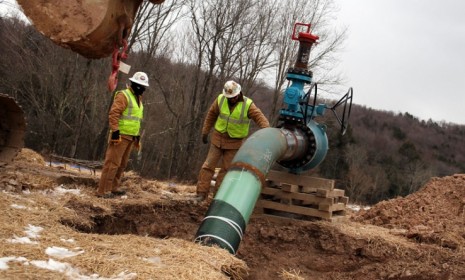Fracking, formally known as hydraulic fracturing, is the technique where water, sand and chemicals are injected under high pressure deep into the earth, to crack the shale rock; releasing in that way petroleum and natural gas. What’s new in this field? Just yesterday, Vermont’s governor has signed a bill making it the first U.S. state to ban fracking!
This controversial method of producing oil and gas is according to Gov. Peter Shumlin’s words “uncertain at best”, pointing out the contamination of groundwater. He continued explaining: “This bill will ensure we do not inject chemicals into groundwater in a desperate pursuit for energy.” However, many said that it was an easy call since there is no drilling taking place in Vermont. The governor opposed to that as it’s not definite they don’t have natural gas. What we cannot ignore though, is the truth in his words: “Very soon, there is going to be a shortage of clean water on this planet. Drinking water will be more valuable than oil or natural gas. Human beings have survived for thousands of years without oil or natural gas. We have never known humanity or life on this planet to survive without clean water.”

However, there is the other side of the coin. Just a week before, Britain’s top environmental regulator said that fracking should be allowed to go ahead. As to whether this process is satisfactory in its environmental impact, Lord Smith (UK Environment Agency chairman) said: “The answer is complex, and is something like ‘up to a point’. But, with careful use of the drilling technology, with rigorous monitoring and inspection, and with the development of a major programme of carbon capture and storage for gas-fired power generation, then shale gas could be a truly useful part of our energy mix.”
Questions arise such as “should we support ban fracking as a dangerous technique responsible for the pollution of groundwater?” or “can this method be used wisely to produce shale gas and oil in a safe way?”.
We have still a long way to go, until we reach the final answer.
elen
